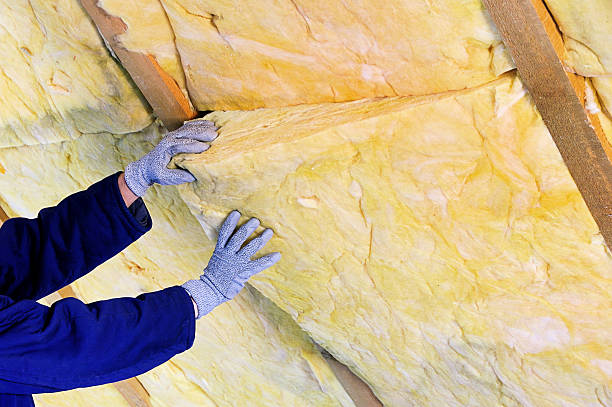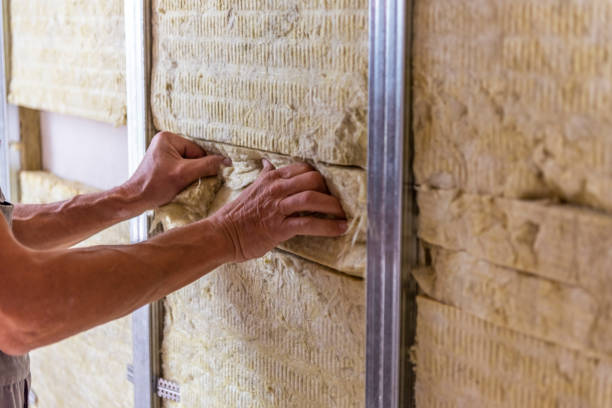Understanding Rock Wool Insulation Cost: Is It Worth the Investment?
Rock wool insulation is a highly effective and eco-friendly solution for thermal and acoustic insulation in buildings. However, before making an investment in rock wool insulation, it’s essential to consider its cost, lifespan, and benefits compared to other insulation materials. This guide will help you understand the costs associated with rock wool insulation, its advantages, and whether it is the right choice for your building project.
- What is Rock Wool Insulation?
- How Much Does Rock Wool Insulation Cost?
- Factors Affecting the Cost of Rock Wool Insulation
- Is Rock Wool Insulation Expensive?
- Is Rock Wool Insulation Worth It?
- Benefits of Rock Wool Insulation
- What Are the Disadvantages of Rock Wool?
- What is the Lifespan of Rock Wool Insulation?
- Can Mold Grow on Rock Wool Insulation?
- Does Rock Wool Insulation Sag Over Time?
- Conclusion
- FAQs
What is Rock Wool Insulation?

How Much Does Rock Wool Insulation Cost?
Factors Affecting the Cost of Rock Wool Insulation
-
Thickness and R-Value: The thicker the insulation and the higher the R-value (thermal resistance), the more expensive the material will be.
-
Size of the Area: The larger the area to be insulated, the higher the overall cost, as more materials will be required.
-
Installation Costs: Professional installation may add to the cost, but it's often necessary for optimal performance.
-
Is Rock Wool Insulation Expensive?
Is Rock Wool Insulation Worth It?
Benefits of Rock Wool Insulation
-
Excellent Thermal Performance: Rock wool provides superior thermal insulation, which helps to reduce heating and cooling costs.
-
Fire Resistance: It is naturally fire-resistant, offering enhanced safety for homes and buildings.
-
Noise Reduction: Rock wool’s dense fiber structure absorbs sound, making it an ideal choice for soundproofing.
-
Eco-Friendly: Made from natural materials, rock wool is recyclable and environmentally friendly.
-
What Are the Disadvantages of Rock Wool?
-
Higher Initial Cost: As mentioned, rock wool insulation can be more expensive than alternatives.
-
Installation Complexity: The material can be heavier and more challenging to install than lighter insulation types, possibly increasing labor costs.
-
Moisture Absorption: If not properly sealed, rock wool can absorb moisture, which can reduce its insulating properties and potentially cause mold growth.
-
What is the Lifespan of Rock Wool Insulation?

Can Mold Grow on Rock Wool Insulation?
Does Rock Wool Insulation Sag Over Time?
Conclusion
FAQs

Does Heat Insulation Work? The Ultimate Guide to FUNAS Insulation Solutions
What is the cheapest way to insulate internal walls? | FUNAS Guide
How thick is acousticlining? | FUNAS Guide
What are the disadvantages of thermal insulation? | FUNAS Guide
How much does acousticfoam reduce sound? | FUNAS Guide
service
What types of rubber foam insulation products do you offer?
We offer a wide range of rubber foam insulation products, including custom shapes and sizes, thermal and acoustic insulation solutions, and options with specialized coatings such as flame retardancy and water resistance. Our products are suitable for applications in HVAC, automotive, construction, and more.
Are your rubber foam products environmentally friendly?
Yes, our insulation products are designed with sustainability in mind. They help reduce energy consumption by minimizing heat loss and gain, and they are made from durable materials that have a long life cycle, reducing the need for frequent replacement.
How does your technical support work?
Our technical support team is available to guide you through every stage of your project—from product selection and design to installation. We provide expert consultation to ensure that you get the best insulation solution for your needs and can assist with troubleshooting if needed.
FAQ
What types of rubber foam insulation do you offer?
We offer a wide range of rubber foam insulation with different thicknesses and specifications. Thermal insulation material manufacturer FUNAS sleeves and sheets are suitable for different application scenarios.
Can your insulation products be customized?
Yes, we offer customized solutions for insulation material wholesale to meet the specifications of your project, including custom specifications, sizes, foils and adhesives, colors, etc.
You might also like



This product has passed the national GB33372-2020 standard and GB18583-2008 standard. (The product is a yellow liquid.)
Anggu foam phenolic glue is a kind of glue with corrosion resistance, low odor, high strength and excellent brushing property. Can be sprayed for construction with fast surface drying speed, long bonding time, no chalking and convenient operation.

This product has passed the EU REACH non-toxic standard, ROHS non-toxic standard. (The product is black glue.)
Anggu 820glue is a low-odor, high-strength quick-drying glue; Fast drying speed, long bonding time, no powder, non-toxic.
Discover the future of energy efficiency with FUNAS's "Top Thermal Insulation Materials List for 2025." Our expertly curated list highlights innovative solutions perfect for your construction and renovation needs. Stay ahead of the curve with cutting-edge insulation technology designed for optimal thermal performance and sustainability. Trust FUNAS for advancements that redefine comfort and efficiency in every project.
Leave a message
Have any questions or concerns about our products? Please leave us a message here and our team will get back to you promptly.
Your queries, ideas, and collaboration opportunities are just a click away. Let’s start a conversation.


















































